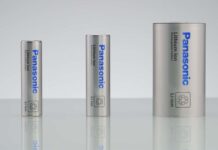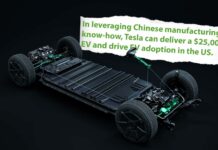[ad_1]

Automakers already made it clear that the rules that will be put into law thanks to the Inflation Reduction Act will likely cripple EV producers long before promoting them. This is because the US simply doesn’t have the battery material mining operations in place that are needed for the growing number of EVs on the road today. Now, the CEO of Piedmont Lithium is chiming in.
For background, the new US federal electric vehicle tax credit has strict requirements related not only to the EVs being manufactured in North America, but also to where the materials are sourced from. More specifically, the EVs’ batteries must be made with materials sourced domestically, or from a country that has a free trade agreement with the US. The rules aren’t as strict initially, but by 2026, vehicles will need to have 80% of critical materials sourced based on the rules.
Having rules that help make the US less reliant on other countries is arguably a positive. However, it’s going to take some time for the country to catch up when it comes to lithium extraction and processing. Piedmont Lithium CEO Keith Phillips told Yahoo Finance Live in a recent interview:
“Yes, we’ll [eventually] have enough, but not by that time. There’s going to be a real crunch to get the material. We don’t have enough in the world to turn that much [lithium] production in the world by 2035.”
While we never suggest relying on one single individual to tell it how it is, the CEO of Piedmont Lithium probably has a pretty solid grasp of the supply and demand issues related to battery materials. Moreover, as we continue to add more electric cars to the mix, the materials will become more scarce.
In the meantime, companies are trying to do what they can to find solutions, but there simply aren’t enough facilities or workers to make anything happen immediately. This is all contributing to the fact that lack of supply and growing demand are causing battery material prices to rise when we have been repeatedly promised that EV batteries are going to get cheaper over time.
Despite the challenges that lie ahead, President Biden has set a goal that all new cars sold in the US by 2030 must be electric cars. To encourage people to make the switch, they’ll be afforded a credit of up to $7,500. However, once the new rules officially kick in, most EVs sold in the US will no longer be eligible for a credit. It will take time for automakers to put the right pieces in place to ensure that their electric vehicles are eligible for a tax credit.
Piedmont Lithium is one of only a few lithium mining companies in the US. It has already announced plans to begin construction on a new lithium processing facility in Tennessee in 2023. It also has another similar project planned for North Carolina thereafter. CEO Philips expressed:
“The world has changed. We’re now in an era where everyone’s going to want an electric car. The car companies can’t make them fast enough, and people are now looking for the lithium they need for the batteries to go in those electric cars.”
That said, Phillips is looking at a very long road ahead. He told Yahoo that the US has a very slow permitting process, which makes matters even worse. China continues to dominate the industry, and Australia and Chile are the largest lithium producers in the world. Phillips notes that lithium-related projects get permitted in Australia in less than a year, while it has taken as many as eight years in the US, though some permits only took two years, which is still way too long.
[ad_2]
Source link













